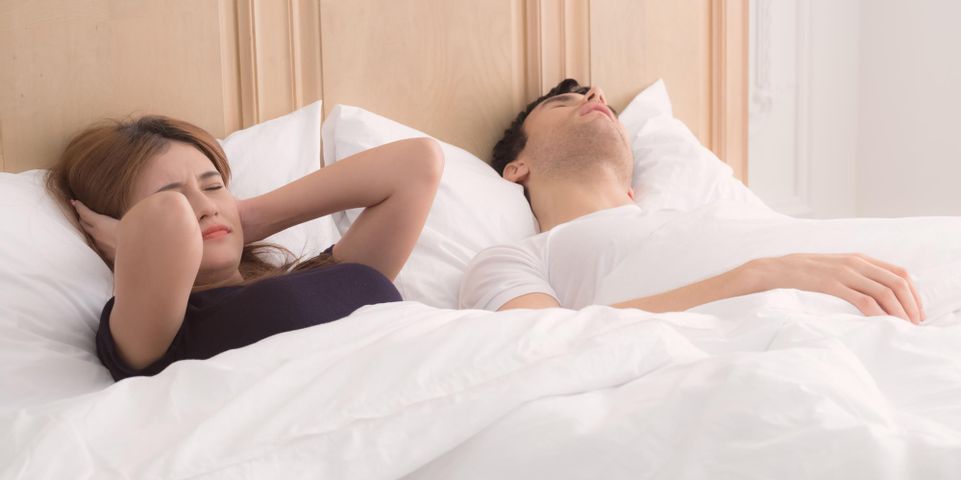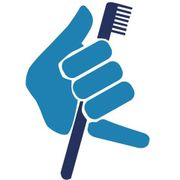
Snoring is the classic pet peeve of many a couple, but few know this irritating noise can be caused by a dental issue. While referred to as the cliché of a good night’s sleep, snoring can actually prevent a restful sleep in many cases if not addressed. Here’s how family dentists identify this common problem and help patients address it.
The Dental Issue That Causes Snoring
Snoring occurs when your throat muscles relax when you sleep. If your airway is in any way obstructed, the soft palate—that soft area you feel on the back of the roof of your mouth—will vibrate, creating a snoring sound. This obstruction is due to the positioning of the jaw and tongue when you’re asleep, which affects the opened structure of the vocal tract you have when breathing.
 To keep the airway open, your jaw must remain in a neutral position, and your tongue should naturally rest on the roof of your mouth. But in the case of someone with an overbite, when the jaw and tongue relax as you fall asleep, the lower jaw falls to that overbite position. When your mouth hinges open as a result, the body of your tongue rests further back in your mouth on the soft palate, creating that environment for vibration when you inhale. Tongue position, in this case, is why snoring is often alleviated by rolling on your side, as the tongue shifts away from the soft palate enough to eliminate the opportunity for vibration.
To keep the airway open, your jaw must remain in a neutral position, and your tongue should naturally rest on the roof of your mouth. But in the case of someone with an overbite, when the jaw and tongue relax as you fall asleep, the lower jaw falls to that overbite position. When your mouth hinges open as a result, the body of your tongue rests further back in your mouth on the soft palate, creating that environment for vibration when you inhale. Tongue position, in this case, is why snoring is often alleviated by rolling on your side, as the tongue shifts away from the soft palate enough to eliminate the opportunity for vibration.
While this explanation of snoring may sound concerning, as you’re preventing yourself from taking deep, clear breaths, keep in mind that you intentionally obstruct your vocal tract to make sounds when speaking. Snoring—in more moderate instances—is nothing more than unintentionally articulating a particular sound when you’re sleeping.The condition for some is just bothersome to the snorer’s partner.
In more severe cases, though, it can cause a sleeping disorder called obstructive sleep apnea (OSA), which makes you stop breathing entirely for a few seconds while asleep, only to jerk awake with a loud gasp. Studies show that about 26% of people who snore have sleep apnea. If untreated, this condition can leave you feeling exhausted even after a long night’s sleep due to the lack of oxygen reaching the brain.
Breathing through your nose results in the healthiest and most restful sleep because the jaw is in a good position for airflow, and the air you breathe is warmed and moistened by your sinuses. With your mouth open when you sleep, the mouth cannot produce enough saliva as you breathe in dry air for an extended period of time.
As a result, snoring—and sleeping with an open mouth by extension—also causes dry mouth, which can accelerate myriad oral health problems like tooth decay, gum disease, and bad breath. Your family dentist can offer tips or remedies to alleviate this symptom, but eliminating the root of the problem would be the best course of action.
A Way to Alleviate Snoring
To correct this cause of snoring and the issues that come with it, family dentists recommend using a snore guard, which repositions the jaw to foster an open airway. Options like the Silent Nite® sl use two custom-fit molded devices attached by connectors on each side to hold the jaw in place. While the hard outer layer guarantees the mouth guard’s durability, the soft inner layer provides a comfortable fit for a good night’s sleep. The device also allows for minimal jaw movement so you don’t feel noticeably restricted by it while asleep.
To get a snore guard, your dentist will create a mold of your teeth to send off to the manufacturer. Once it arrives, they will work with you to determine what position for the connectors is most effective while still comfortable.
Do you or a family member think it’s time to invest in a snore guard? The team at Oahu Dental Care will help you unlock a better night’s sleep for everyone with a Silent Nite® sl device. Their dedicated team of family dentists have served the island of Oahu for more than 25 years with superior, personalized dental care, from braces to mouthguards. To schedule an appointment, call (808) 732-2821 to reach the Honolulu office or (808) 456-5005 to speak with the team in Pearl City, or visit them online for more information.
About the Business
Have a question? Ask the experts!
Send your question

